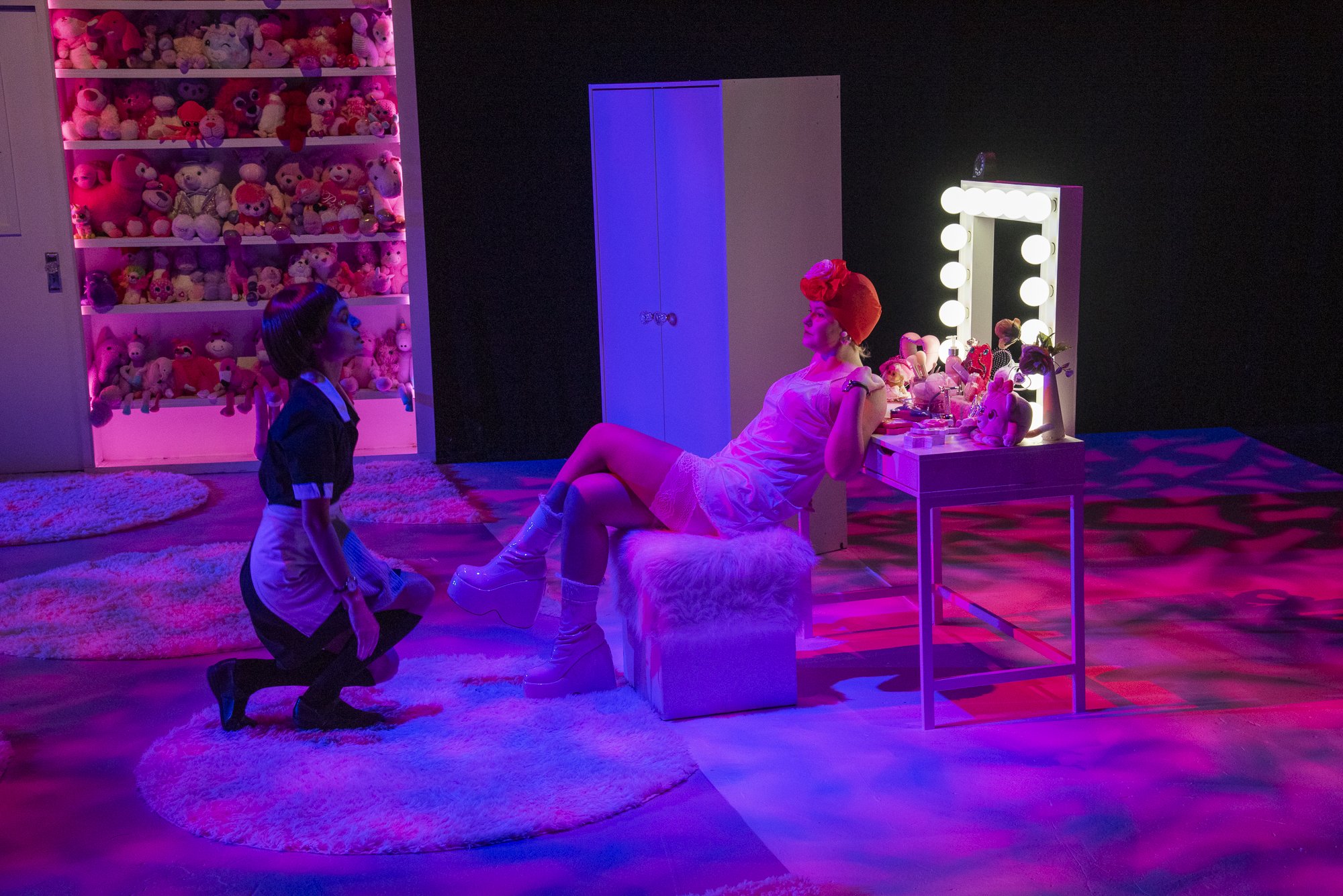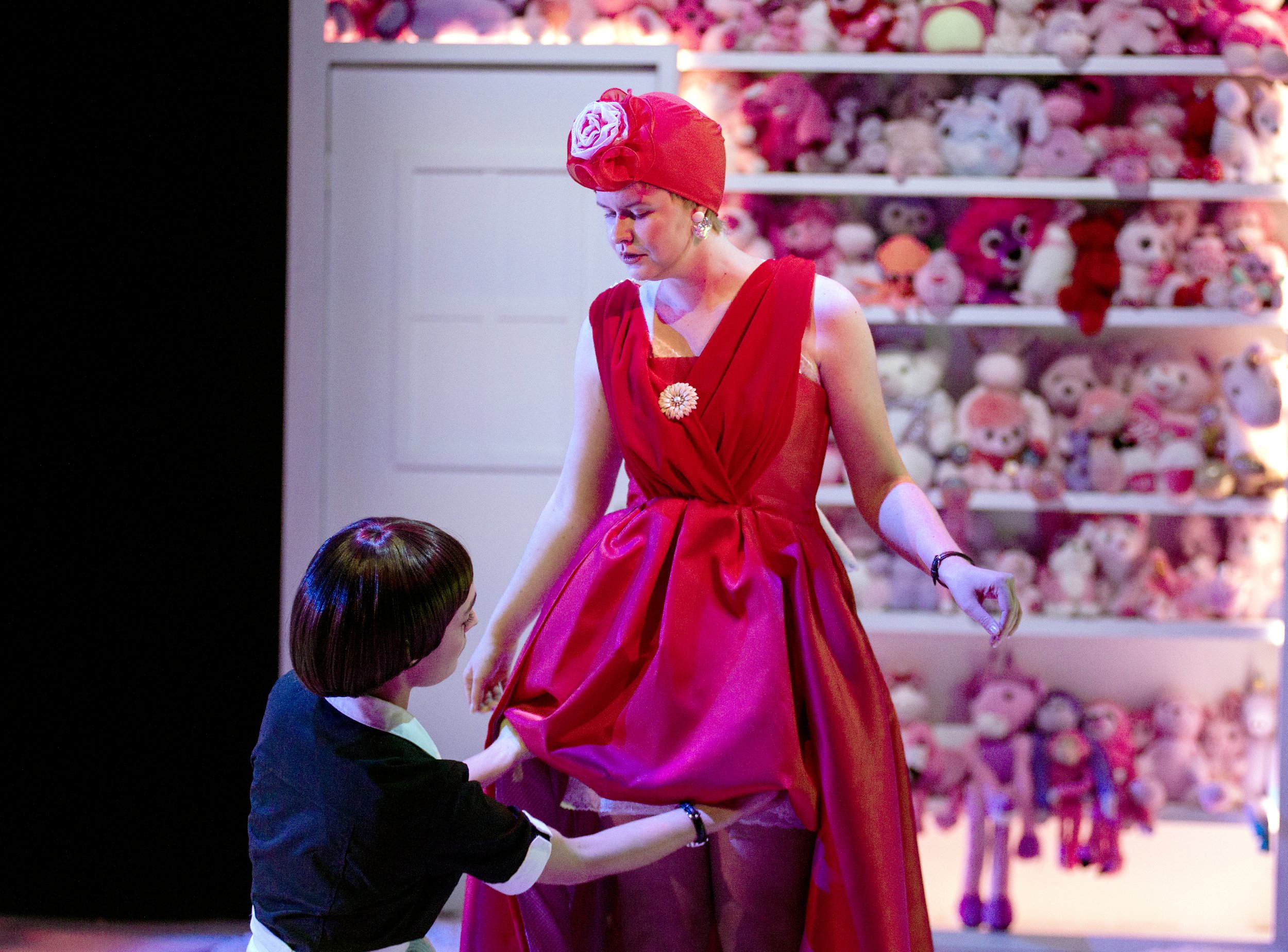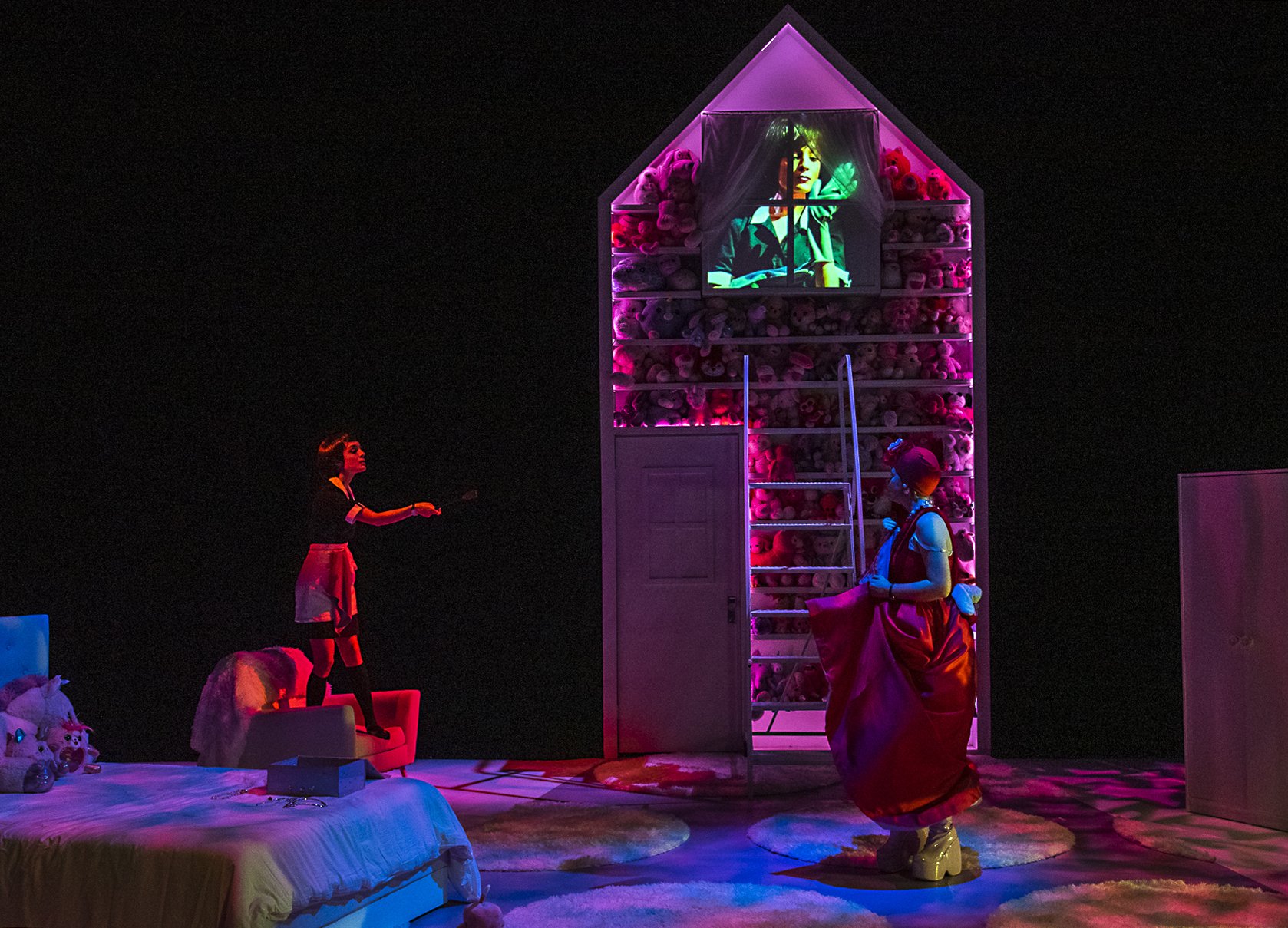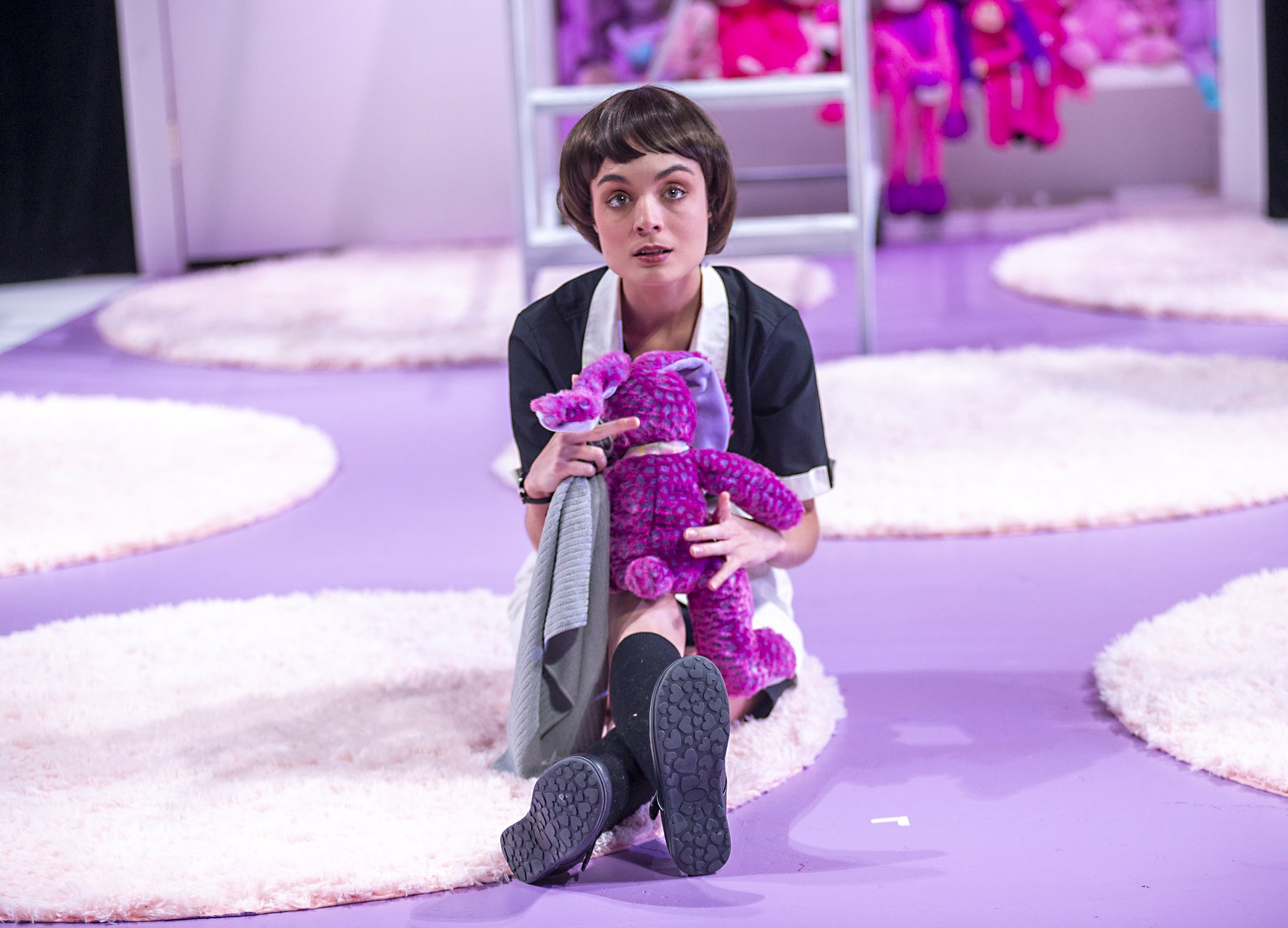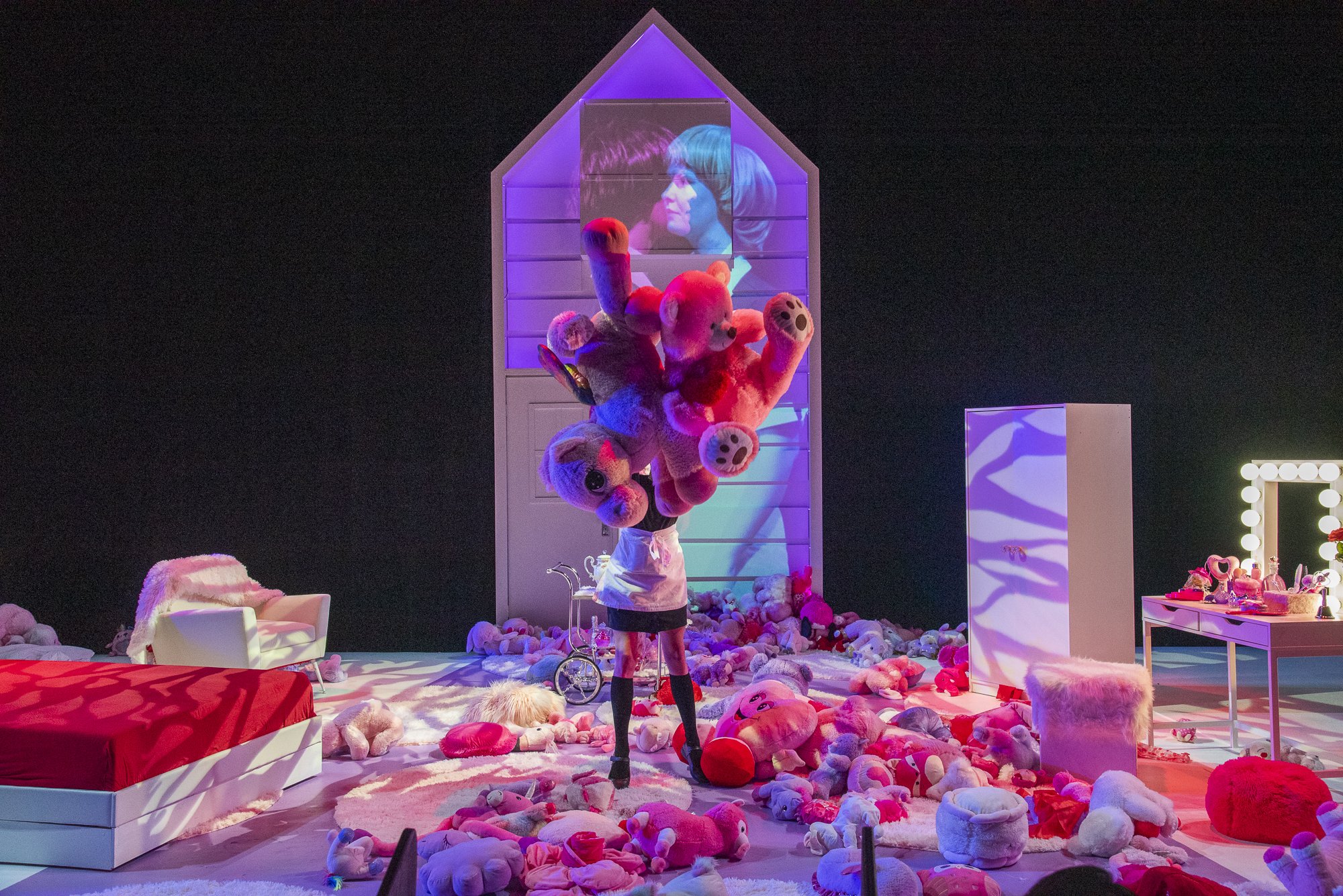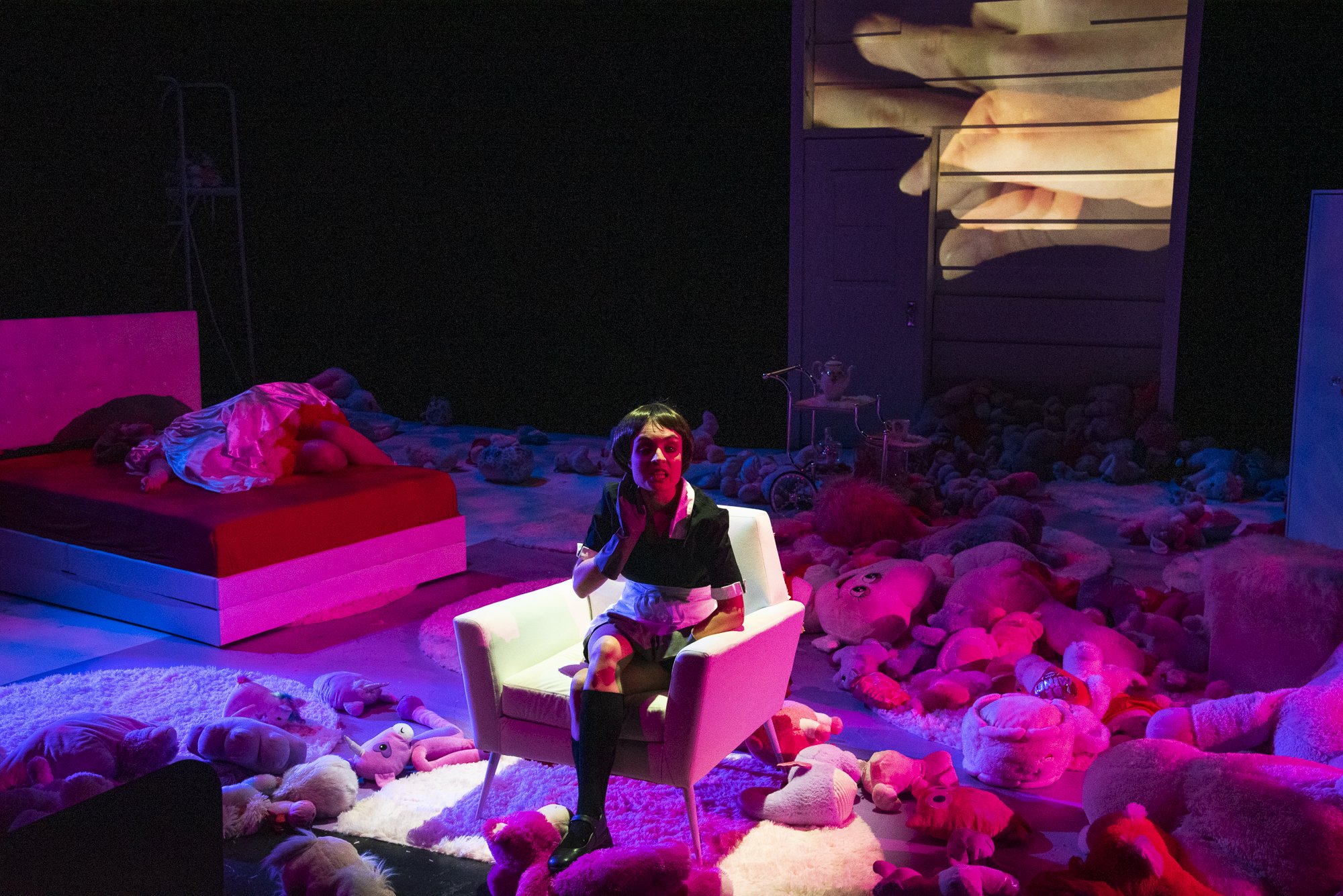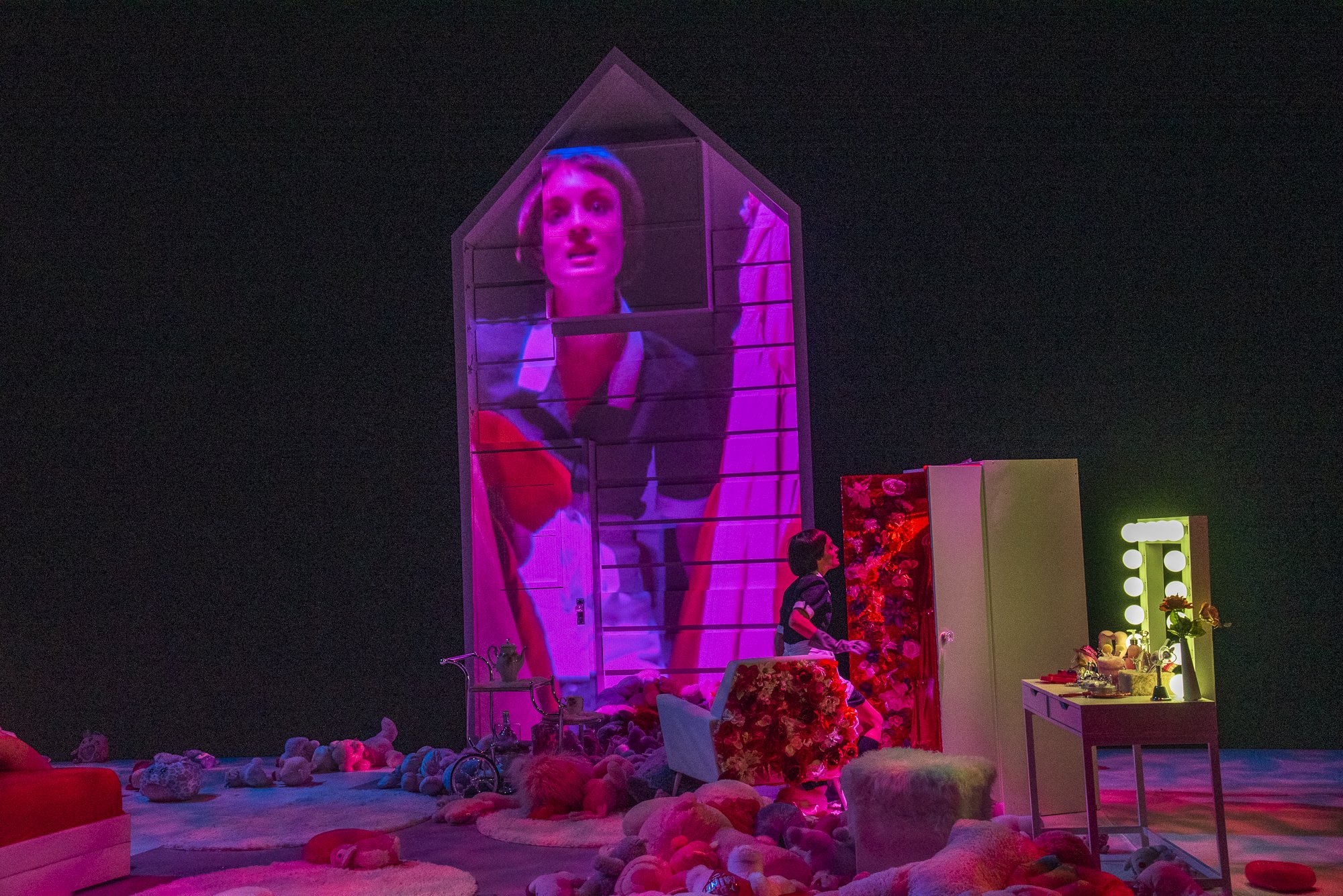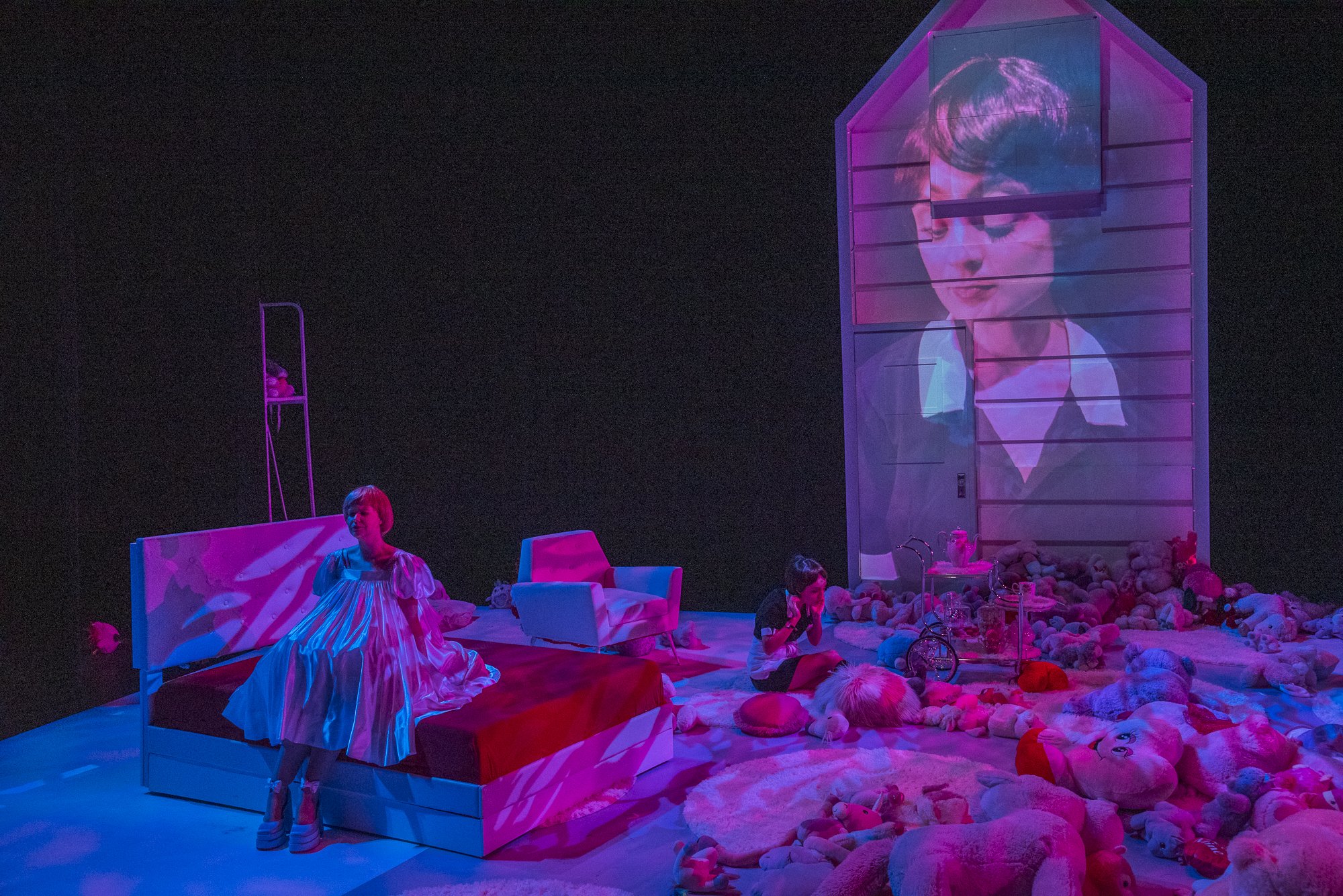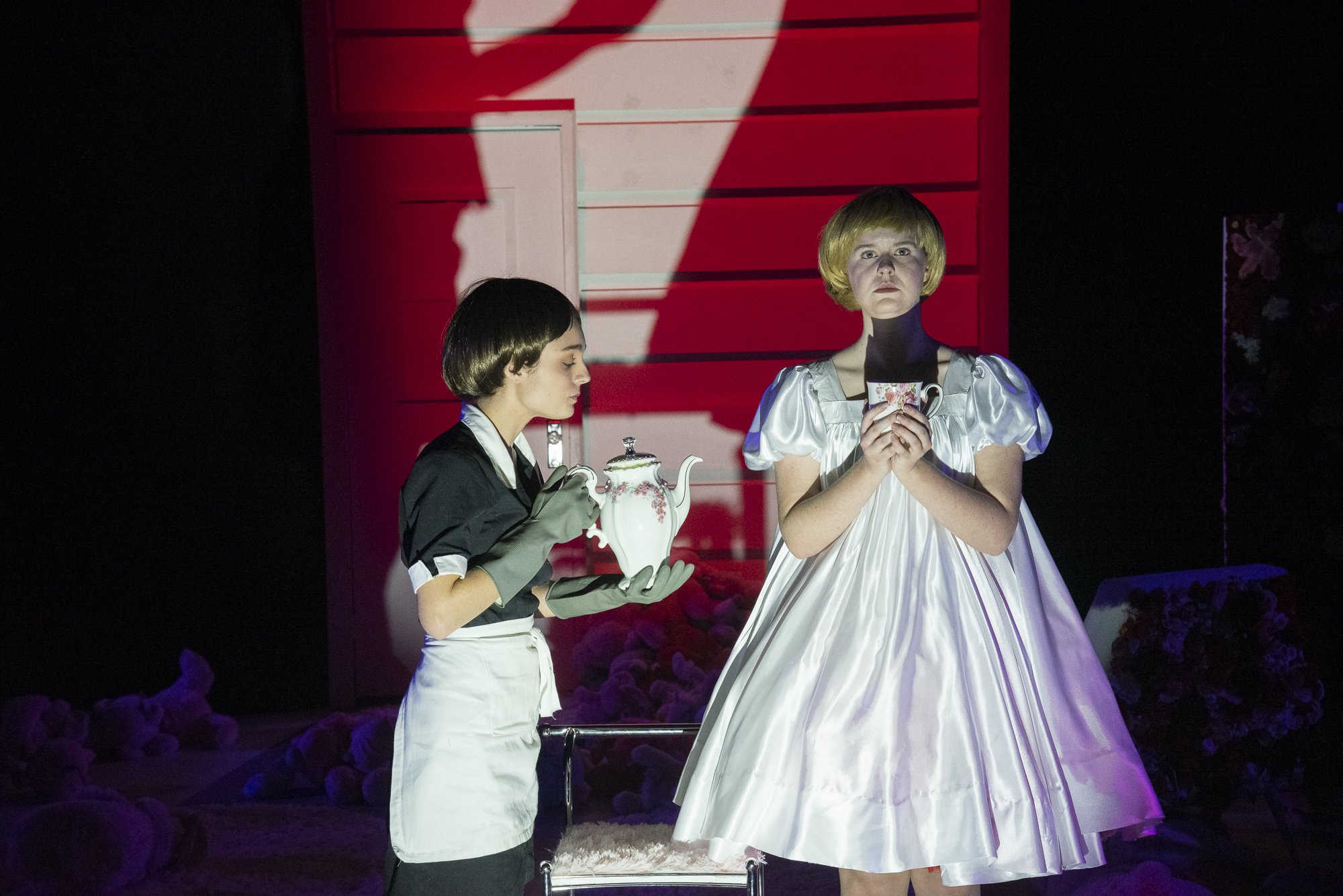
THE MAIDS
by Jean Genet
Salisbury University’s Bobbi Biron Theatre Program
Description: Jean Genet's revolutionary absurdist work delves into a darkly humorous exploration of a real-life crime. In the absence of their wealthy employer, two sisters, serving as maids, indulge in fantasies revolving around class, love, and vengeance. As their antics grow more intense, so does the impending violence, heightening as they anticipate Madame's looming return.
Director’s notes are below the photo gallery.
Production Team:
Scenic Designer: John Raley
Costume Designer: Melissa Flores
Projection Designer: Tláloc López-Watermann
Lighting Designer: Daelyn Funk
Sound Designer & Original Composition: Derek Etman
Photos: Deny Howeth
Director’s Notes:
“I contain within me both vengeance and the maid and give them a chance for life, a chance for salvation.”
Famed rocker Patti Smith quotes the opening line of Jean Genet’s semi-autobiographical The Thief’s Journal in her forward to the novel: “Convicts’ garb is striped pink and white.” As she notes, Genet queers the masculinity of the prison setting by immediately calling out the femininity of the prisoners’ uniforms. When discussing Genet’s act of queering, the double meaning of the term is intended: queer as a (re)coding of sexuality and estranging the familiar and mundane through dizzying, obsessive focus. In fact, this doubling, as illustrated in The Maids, is central to his artistic expression.
Claire stares into Solange’s eyes and says, “I'm sick of seeing my image thrown back at me by a mirror, like a bad smell. You're my bad smell.” The two sisters are each other’s mirrors; not just reflecting each other’s physical likeness but also the oppression of their reality. If not too distracting, take note throughout the performance of how often Genet employs the imagery of the double: mirrors, impersonations, reflections, echoes, shadows, etc. Solange and Claire’s paranoia could even be considered an example of folie à deux (“the folly/madness of two,” a shared delusion between two people), heightening their tightly wound duplicity. Through the queered boundaries of the double, Genet is able to expose the stark hypocrisy of the social class divisions and patriarchal prescriptions of femininity.
On a personal note, this piece serves as a mirror of a former process. I developed this hyperfeminine, pink and purple fever dream of a concept of The Maids in late 2019, and a group of collaborators and I were set to perform it in Tennessee in March 2020. Our production, along with the rest of the world, shut down. We abandoned hundreds of stuffed animals still set up for rehearsal in a rehearsal room until we could throw them in totes and store them in my parents’ basement. Instead of abandoning the project, the theatre program agreed not only to take on this project but enhance it beyond what I ever imagined this piece could be. After transferring hundreds of stuffed animals across state lines over the course of a year, I began unpacking the Rubbermaid time capsules, rediscovering a process that had been frozen in time. I was faced with a mirror of a former process, a pre-Covid 19 process. Genet centralizes ritual in all of his works, and I was suddenly engaged in my own ritual of excavating the past to discover what this piece is in the present.
I am grateful for the three years between starting this piece and bringing it to fruition—sometimes, we need to sit with our mirrors for a long while to discover what is beyond the facade. And I am eternally grateful to the SU Bobbi Biron Theatre Program for trusting my vision for this piece.

